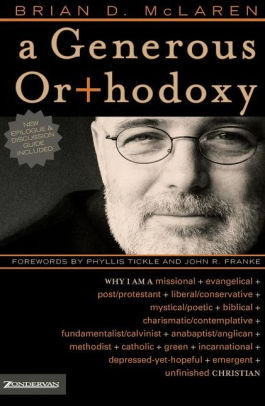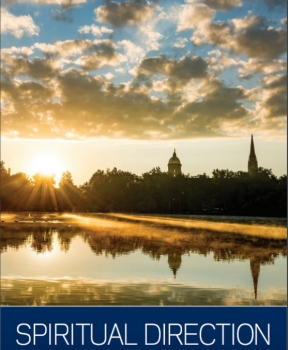CALLING FOR A NEW REFORMATION
PART 1
As we approach the 500th anniversary of the Protestant Reformation, it is not uncommon to hear someone or some group call for a NEW REFORMATION.
With the direction of the Church over the last few decades, some used to call for a REVIVAL. Those same calls are now directed towards a call for a NEW REFORMATION. These same groups are making a statement urging the Church to mimic some of the main points of the Reformation and look to the Bible for our truth and inspiration instead of looking elsewhere.
However, an even louder cry is heard from those who are calling for a NEW REFORMATION that doesn’t seek to promote the tenants of the Protestant Reformation but rather to promote a new view of Christianity. New? Well, there is nothing new under the sun. In reality, it is a retreat into Pre-Reformation darkness. The following article was written by Dr. Paul Elliott back in 2010 as he explains the EMERGING CHURCH movement and its effect on the church at large and seminaries. He makes several enlightening points that are just as important to understand today as it was several years ago in 2010. This article is taken from http://www.trinityfoundation.org/journal.php?id=269
The Emergent Church’s Retreat into Pre-Reformation Darkness
Paul M. Elliott
Jan-April 2010
Editor’s note: Paul Elliott, Ph.D., is President of TeachingTheWord Ministries and principal speaker on The Scripture-Driven Church radio broadcast. An ordained minister with a doctorate in Biblical exegesis, he is the author of four books, including Christianity and Neo-Liberalism: The Spiritual Crisis in the Orthodox Presbyterian Church and Beyond (Trinity Foundation, 2004).
In recent years, the Emergent Church movement has become a headline grabbing favorite of the religious media establishment. Emergent leaders’ books line the shelves of religious bookstores. Press coverage of their activities and pronouncements is overwhelmingly favorable. The movement received national exposure in a two-hour PBS television special and on ABC’s Nightline. Emergents’ influence has spread like wildfire in colleges, seminaries and churches – mainline liberal, Roman Catholic, and Evangelical alike.
Emergent Church(1) leaders and their supporters promote the movement as “the way forward” for the church. It is, they claim, a “new Reformation” with its own “95 theses” and its own new Luther pointing the way. But the Emergents’ “way forward” is in fact a headlong, headstrong retreat into pre-Reformationspiritual and intellectual darkness.
“By Their Fruits You Will Know Them”
Most Bible-believing Christians know little about the Emergent church movement, even as it devours once-sound churches, Christian colleges, and seminaries. Many sincere Christians have been confused and even deceived. They are ready to give Emergents the benefit of the doubt because the movement’s place on the theological spectrum seems difficult to pin down. Are they liberals? Are they conservatives? Do they simply defy conventional labels?
Emergent’s own definition of their movement is unhelpful: “a growing, generative friendship among missional Christians seeking to love our world in the Spirit of Jesus Christ.”(2) Emergents make up their theology (if it can be dignified by that term) on the fly, and it changes with the winds.
Bible-believers need not be confused by the Emergent confusion. The Lord Jesus Christ himself gave us a straightforward procedure for evaluating all men and movements:
Beware of false prophets, who come to you in sheep’s clothing, but inwardly they are ravenous wolves. You will know them by their fruits. Do men gather grapes from thornbushes or figs from thistles? Even so, every good tree bears good fruit, but a bad tree bears bad fruit. A good tree cannot bear bad fruit, nor can a bad tree bear good fruit. Every tree that does not bear good fruit is cut down and thrown into the fire. Therefore by their fruits you will know them (Matthew 7:15-20).
We must evaluate Emergents’ fruits by the infallible standard of Scripture alone. The Bible employs none of the man-made, sliding-scale labels churches too often apply in such evaluations – liberal/conservative, classical/progressive, traditional/non-traditional, old-school/new-school. Nor does the Bible speak in terms of following a “third way” of compromise. In His Word, the Holy Spirit uses only two categories: truth and error.
The dividing line between truth and error is fixed and well-delineated in God’s Word. It is the Christian soldier’s battle front. On one side is light, on the other side darkness. There is no demilitarized zone where the forces of truth and error may meet under a flag of truce and negotiate. Unless Christians view the fruits of the Emergent confusion in those terms, we view them un-Biblically.
Those fruits include deconstruction of the Bible, grace, faith, salvation, and the church. Emergents’ deconstruction of the person and work of Jesus Christ is openly blasphemous. Emergents arrogantly proclaim that the Gospel of salvation by grace alone, through faith alone, in the finished work of Christ alone, is an insult to their intelligence. Man, not Christ or the Bible, is preeminent in Emergent thinking. The Emergent Church may be the most narcissistic movement in church history.
New Luther or Blind Leader?
In 2004, Emergent guru(3) Brian McLaren published what was hailed as a landmark book called A Generous Orthodoxy.(4) Phyllis Tickle, who according to her website is “a lay eucharistic minister and lector in the Episcopal church,”(5) wrote the foreword, in which she said:
Religion is like a spyglass through which we look to determine our course, our place in the order of things, and to sight that toward where we are going [sic]. On a clear day, no sailor needs such help, save for passing views of a far shore. But on a stormy sea, with all landmarks hidden in obscuring clouds, the spyglass becomes the instrument of hope, the one thing on board that, held to the eye long enough, will find the break in the clouds and discover once more the currents and shores of safe passage. Ours are stormy seas just now; and I believe as surely as Martin Luther held the spyglass for sixteenth-century Europe, so Brian McLaren holds it here for us in the twenty-first….
…The emerging church has the potential of being to North American Christianity what Reformation Protestantism was to European Christianity. And I am sure that the generous orthodoxy defined in the following pages is our 95 theses. Both are strong statements, strongly stated and, believe me, not lightly taken in so public a forum as this. All I can add to them in defense is the far simpler statement: Here I stand.
So, on that basis, the one thing that remains is to invite you to join thousands and thousands of others who have already read these words and subsequently assumed them as the theses of a new kind of Christianity and the foundational principles for a new Beloved Community.(6)
The “Beloved Community” of which Tickle speaks is a term coined by pseudo-Christian philosopher Josiah Royce (1855-1916). In his 1913 book, The Problem of Christianity, Royce said that the doctrine of the incarnation is not about the coming of God in the person of Jesus Christ, but the incarnation of God in the visible church. He added that “the visible church, rather than the person of the founder [Jesus Christ], ought to be viewed as the central idea of Christianity.” To Royce, the “problem of Christianity” was Jesus Christ.
Royce also said that the visible church forms a “Universal Community of Interpretation” that redefines “Christianity” to suit the conditions of the times. Royce is a favorite philosopher of the Emergents. Tellingly, his long-out-of-print book was recently republished by the Catholic University of America, an institution of the greatest chameleon-church on Earth.(7)
Confused and Proud of It
Brian McLaren is clearly comfortable in the intellectual and theological company of people like Tickle and Royce. The full title of McLaren’s “95 theses of the Emergent Church” is quite a mouthful:
A Generous Orthodoxy: Why I Am a Missional — Evangelical — Post-Protestant — Liberal/Conservative — Mystical/Poetic — Biblical — Charismatic/Contemplative — Fundamentalist/Calvinist — Anabaptist/Anglican — Methodist — Catholic — Green—Incarnational — Depressed-Yet-Hopeful — Emergent — Unfinished Christian
Rather than being ashamed of his confused state of mind, McLaren wears this complex and contradictory title proudly. He uses each of the descriptions in the lengthy subtitle of his book as the title of a chapter within it. McLaren presents himself as the guru of a “new Reformation” built not on Biblical orthodoxy, but on a man-centered theology of paradox.
A followup book, An Emergent Manifesto of Hope (2007), authored by McLaren and twenty-six other Emergent thought leaders, is an equally confused and confusing theological Tower of Babel. Its architects and builders are bent on not simply tearing down the Reformation, but on taking the church back into pre-Reformation darkness. In the process, McLaren and his fellow Emergents leave no doubt that they are not really Christians at all.
The Origin of the Term “Emergent”
The Emergent Church movement is unabashedly POSTMODERNIST. Emergents’ only absolute is that there are no absolutes. Feelings and experience preclude the acceptance of propositional truth. Emergent “truth” comes through dialogue and consensus, and therefore today’s “truth” is not necessarily tomorrow’s. Theology is “conversational.” Truth itself is “emergent.”
What is the definition of “emergent”? Brian McLaren offers this:
There are many kinds of thinking. Some thought is discursive, tracing the development of an idea in a linear way. Some is polemical, staging a winner-takes-all fight between ideas. Some is analytical, breaking down complex wholes into simple parts or tracing complex effects back to simpler causes. But some thought seeks to embrace what has come before – like a new ring on a tree – in something bigger. This is emergent (or integral, or integrative) thinking.(8)
This definition of “emergence” has its roots in the philosophy of a man named Ken Wilber, who mixes elements of Christianity, Buddhism, New Age, and EASTERN philosophies into his so-called religious practice. Wilber is becoming popular as a thought leader among an ever-widening circle of Evangelical and Reformed churches and seminaries. McLaren says the definition of “emergence” is based on Wilbur’s evolutionary concept of the “Great Nest of Being” which consists of, as McLaren puts it, “these realities” –
1. Space and Time: the primal creation in which everything emerges.
2. Inanimate Matter: the domain of physics and chemistry in space and time.
3. Microbiotic and Plant Life: the domain of microbiology and botany, which embraces domains 1 and 2 and adds life.
4. Animal Life: the domain of zoology, which comprises domains 1 through 3 and adds increasing levels of sentience and intelligence.
5. Human Life: the domain of anthropology and psychology and art and ethics, which comprises domains 1 through 4 and adds increasing levels of consciousness and culture.
6. Spiritual Life: the domain of awareness of God, accessed through theology and spirituality and mysticism, which encompasses domains 1 through 5, and adds the experience of the sacred and conscious relationship with God.(9)
This kind of thinking marries Eastern mysticism and New Age thought with classical Darwinism. Everything emerges from something else, says McLaren. He then gives his first example of how he says Christians need to practice “emergent” thinking: “In whatever ways Protestants feel they emerged from Catholicism…they can’t despise their roots or reject their past.”(10) As we shall see, what McLaren has in mind is a redefinition of Protestantism as the prelude to an unconditional surrender to Roman Catholicism.
Say “So Long” to the Solas
How does the Emergent Church’s “new Reformation” compare with the one that freed Biblical Christianity from the shroud of Romanism? What of the five solas, the rallying cries of that Reformation? What of sola Scriptura, the Reformers’ declaration that the Christian’s authority is Scripture alone? What of sola gratia, salvation by grace alone? What of solus Christus, the truth that salvation is through Christ alone? What of sola fide, justification by faith alone? And do Emergents believe in soli Deo gloria, that the glory belongs to God alone?
Emergents dismiss adherence to such fundamentals, says spokesman Barry Taylor, as “a constant reminder that religion can be a source of chaos and confusion.”(11) But who is it that is really living in the realm of chaos and confusion — those whom the Emergents deride as “fundamentalists”, or Emergents who have exalted themselves against the knowledge of God? How do the theological currents flowing through the Emergent Church compare with the Reformation’s great and fundamental statements of the Biblical faith “once for all delivered to the saints”? We shall allow Emergent Church spokesmen to answer for themselves, to their own condemnation.
Deconstructing the Word of God
We begin with sola Scriptura, the doctrine that the Christians’ sole authority is Scripture alone. Emergent Church leaders will tell you they are uncertain of most things. They wear ambiguity like a badge of honor. But they are certain of one thing: The Bible is not the inspired, infallible, inerrant, uniquely authoritative Word of God.
What do Emergent Church leaders say is the nature of the Bible? Emergent guru McLaren says that the Bible is “an inspired gift from God – a unique collection of literary artifacts.”(12) Emergent leader Doug Pagitt agrees with McLaren, hinting at what they mean by “inspired.” The “history of the Christian faith,” Pagitt says, is that “the Scriptures come from and inform the church.”(13) In other words, they do not come from God in the sense of verbal, plenary, authoritative inspiration spoken of in passages such as 2 Timothy 3:16-17 and 2 Peter 1:20-21.
McLaren is even more explicit. He says that “the purpose of Scripture is to equip God’s people for good works.”(14) The italics are his. McLaren and other Emergents repeat this statement frequently in their writings, almost as a mantra. But there is never a word about Scripture’s telling mankind how to become one of God’s people, through faith in the person and work of Jesus Christ. Throughout their writings, Emergents assume that everybody is already one of “God’s people.” You just have to get busy doing “good works”.
But after stating that “the purpose of Scripture is to equip God’s people for good works,” McLaren follows immediately with this: “Shouldn’t a simple statement like this be far more important than statements with words foreign to the Bible’s vocabulary about itself (inerrant, authoritative, literal, revelatory, objective, absolute, propositional, etc.)?”(15)
Just how “foreign” does McLaren think these words are to Scripture? He does not hesitate to tell us, in a book with one of the most ironic titles ever: Adventures in Missing the Point, co-authored by McLaren and so-called “Evangelical left” spokesman Tony Campolo. McLaren’s and Campolo’s title reflects their fatuous belief that the Bible-believing Christian church has “missed the point” on just about everything. (Of course, Emergents have “gotten the point.”) “The Bible is an inspired gift from God – a unique collection of literary artifacts,” McLaren says. But it is not the inspired, infallible, inerrant, propositional, revelatory, absolute, objective, Word of God. What’s more, McLaren asserts, “not even one-hundredth of one percent of the Bible” presents “objective information about God.”(16)
Those are some pretty absolute statements from a man who claims that little, if anything, is certain. But McLaren is just getting warmed up. The Christian church, says McLaren, has misrepresented the Bible as something containing “universal laws.” “We claimed that the Bible was easy to understand,” he laments. “We presented the Bible as a repository of sacred propositions.” All of that was wrong, he says. And, echoing the true position of the Roman Catholic Church-State, McLaren laments that “we mass produced the Bible” and gave Christians the impression that they could interpret it for themselves.(17)
Orthoparadoxy and Paradoxology
How, according to Emergents, are we to approach this “inspired” but humanly-originated, non-inerrant, non-infallible, non-authoritative Bible? Emergent spokesman Dwight J. Friesen, a professor of practical theology at Mars Hill Graduate School (Seattle) and a member of the Faith and Order Commission of the ultra-liberal National Council of Churches, says that Christ was not interested in orthodoxy but in “a full and flourishing human life.”(18) What must develop, says Friesen, is not orthodoxy – correct teaching – but a piece of Emergent doubletalk called orthoparadoxy, or “correct paradox.” Friesen writes:
Orthoparaxody represents a conversational theological method that seeks to graciously embrace difference while bringing the fullness of a differentiated social-self to the other. Through the methodology of orthoparadoxy, competing ideas, practices, and hermeneutics are seen as an invitation to conversational engagement rather than as something to refute, reform, or revise.(19)
Current theological methods that often stress agreement/disagreement, win/loss, good/bad, orthodox/heresy, and the like set people up for constant battles to convince and convert the other to their way of believing…(20)
Orthoparadox theology is less concerned with creating “once for all” doctrinal statements or dogmatic claims and is more interested in holding competing truth claims in right tension….Orthoparadox theology requires a dynamic understanding of the Holy Spirit.(21)
…see conversation starters where you once saw theological disagreement.(22)
Emergent Church spokeswoman Nanette Sawyer has added another term to the Emergent lexicon of confusion and doubt: paradoxology. Sawyer is an ordained Presbyterian Church USA (PCUSA) minister with degrees from both Harvard and McCormick divinity schools. Sawyer, like most of her fellow Emergents, takes refuge from the light of truth in the caverns of paradox. Those who believe the Bible’s categorical, propositional truth claims are arrogant and superficial, she says. They have not ascended to the lofty realms of higher knowledge that can only be attained by embracing paradox:
There is a beauty in paradox when it comes to talking about things of ultimate concern. Paradox works against our tendency to stay superficial in our faith, or to rest on easy answers or categorical thinking. It breaks apart our categories by showing the inadequacy of them and by pointing to a reality larger than us, the reality of gloria, of light, of beyond-the-beyond. I like to call it paradoxology – the glory of paradox, paradox-doxology – which takes us somewhere we wouldn’t be capable of going if we thought we had everything all wrapped up, if we thought we had attained full comprehension. The commitment to embracing the paradox and resisting the impulse to categorize people (ourselves included) is one of the ways we follow Jesus into that larger mysterious reality of light and love.(23)
The Gnostics, who sought to destroy the Biblical faith of the early church by leading it to a “higher” mystical knowledge beyond Scripture, would be proud of Nanette Sawyer. So would the church of Rome, whether 16th– or 21st–century. This is how we must approach the Bible, according to Brian McLaren:
Drop any affair you may have with Certainty, Proof, Argument…The ultimate Bible study or sermon in recent decades yielded clarity. That clarity, unfortunately, was often boring – and probably not that accurate, either, since reality is seldom clear, but usually fuzzy and mysterious…(24)
Find things to do with the Bible other than read and study it [and McLaren then suggests several that are forms of medieval, mystical meditation commended by the Roman Catholic church].(25)
In the recent past we generally began our apologetic by arguing for the Bible’s authority, then used the Bible to prove our other points. In the future we’ll present the Bible less like evidence in a court case and more like works of art in an art gallery.(26)
In the recent past we talked a lot about absolute truth, attempting to prove abstract propositions about God (for instance, proving the sovereignty of God).(27)
That approach, McLaren asserts, is passé in the postmodern world. Protestants have gotten it all wrong about the Bible, by using concepts of truth and error to “lay low” their Catholic “brethren”
Protestants have paid more attention to the Bible than any other group, but sadly, much of their Bible study has been undertaken to fuel their efforts to prove themselves right and others wrong (and therefore worthy of protest)… the Bible does not yield its best resources to people who approach it seeking ammunition with which to lay their [Catholic] brethren low… How many Protestants can’t pick up their Bibles without hearing arguments play in their heads on every page, echoes of the polemical preachers they have heard since childhood? How much Bible study is, therefore, an adventure in missing the point?(28)
Stone Soup Theology
Emergent theology must embrace mystery and paradox, and discard propositional truth, because of its rush to include all ideas and perspectives in the pursuit of “higher knowledge.” Emergents often refer to their approach as “conversational theology.” In the Emergent view, too many cooks don’t spoil the soup. They enrich it and spice it up.
But the dish simmering in the Emergent kitchen is actually stone soup. The recipe reads thus: Start not with God’s Word but with an empty pot. Fill it not with Living Water but with the dank and putrefying fluid of broken cisterns. Throw in any old stone just as long as it is not Christ the Rock of Offense. Then let everyone who comes along throw in any heresy he (or she) wishes, whether it’s fresh from the fertile fields of postmodernism, or stinking and moldy from the dark cells of the Middle Ages. Stir the soup constantly and mix thoroughly. You can serve this fetid dish at any stage in the cooking process. Serve hot, cold, or lukewarm. It doesn’t matter, because your fellow Emergents (and their camp followers in academia and the religious media) will say it’s delicious no matter what.
For Bible believers whose spiritual taste buds have not been seared with a hot iron, the true taste of this theological soup is bitter irony: While Emergent theology claims to be generously inclusive, it is fatally exclusive of anything that really matters. While it welcomes any and every idea the sinful mind of man can imagine, it rejects anything from the mind of God. Certain ideas are forbidden – or if they are introduced into the conversation, they will be ridiculed and quickly rejected. Those ideas are the Bible’s propositional truths.
The results are predictable. The Emergent “God” is not the God of the Bible, but whatever Emergents make him/her/it out to be – and you will find Emergents referring to “God” as any of the three.
The Bible is not the inspired, infallible, inerrant, uniquely authoritative Word of God, but a collection of literary artifacts. Its value and usefulness are determined not by any objective standard, but by Emergents’ subjective agendas.
“Grace” is not the gift of God that brings about salvation from sin and Hell, but Emergents’ gift of inclusiveness to anyone of any religion, or no religion at all, as long as all can agree on a left-wing social-economic-environmentalist agenda.
Jesus Christ may be many things, but He is not the God of the Bible. He may be a moral example, a social revolutionary, a religious iconoclast, or a radical environmentalist. As we shall see, in the Emergents’ twisted theology He may even be an insane sexual pervert. Emergents’ blasphemy of Christ knows no limits.
The Gospel: An Insult to Emergents’ Intelligence
The writings of Emergent Church spokesmen contain many recurring themes, but one is especially prominent: The Biblical Gospel of personal salvation from sin and wrath by God’s grace alone, through faith alone, in Jesus Christ alone, is an insult to their intelligence. Nanette Sawyer, whose love of “paradoxology” we mentioned earlier, is among the insulted. Her story is typical:
My explicit rejection of Christianity happened when our family minister implicitly rejected me. When I was a preteen, he visited our house, spoke with my parents, then pulled me aside, the eldest, for a chat of our own. He asked me if I was a Christian. This is a very interesting question to ask a child who has been raised in a Christian household. Being asked such a question I was, in essence, being told that I might notbe a Christian. I responded that I didn’t know. The conversation went downhill from there and ended with my saying that I guessed I wasn’t a Christian. He told me that I had to believe [on Jesus Christ as Savior] to be a Christian and I didn’t believe it.
After that, I spent a good fifteen years defining myself as not Christian. Some of the things that I had been taught in Christian contexts, both explicitly and implicitly, were unacceptable to me. I was taught, for example, that there are good people and bad people, Christian people and non-Christian people, saved people and damned people, and we know who they are.
…I was taught that I was inherently bad, and that I would be judged for that. I was told that the only way out of the judgment was to admit how bad I was…
Thinking back on that pivotal interaction with my childhood minister, I believe the whole conversation missed the mark in a big way. He was defining Christian identity as assent to a list of certain beliefs, and he was defining Christian community as those people who concur with those beliefs…In asking me if I was a Christian, and accepting [my] answer, he essentially told me that I wasn’t part of the community. I wasn’t in; I was out.(29)
Affronted by this, Sawyer says that she later became a “Christian” through Hindu meditation and the medieval, mystical Roman Catholic practice of “centering prayer” — all while a student at Harvard, taking a master’s degree in comparative world religions. She then tells of her experience while attending the services of a liberal Presbyterian church in Boston:
The minister there invited me into the community by serving me communion without asking if I was a Christian… He didn’t ask, “Are you one of us?” He didn’t say, “Do you believe?” He simply said, “Nanette, the body of Christ, given for you.”(30)
On this basis, Sawyer says, she became a “Christian” and was subsequently ordained as a minister in the apostate PCUSA.
With all this background, you may understand the reason my statement of faith, my personal credo, written in seminary and required for ordination in the Presbyterian Church [USA], included the line: “I believe that all people are children of God, created and loved by God, and that God’s compassionate grace is available to us at all times.”
Imagine my surprise when a particular pastor challenged me on this point. He suggested that “children of God” is a biblical phrase, and that I was using it unbiblically. He believed that not all people are children of God, only Christians…(31)
Imagine a pastor having the nerve to say that to be a “child of God” is a doctrinal term with a specific Biblical meaning! How thoroughly un-postmodern can you get? Sawyer recounts her shocked reaction to this intellectual baboon: “I focused on not letting my jaw hit the floor.” She continues:
So what about the Bible on this question of the children of God? Is it unbiblical to call all people the children of God? It is true that there are many places in the New Testament that talk about the children of God as the followers of Jesus. But it is not true that this must lead us to the kind of arrogance that asserts that non-Christians are not children of God….
Even if we could answer the question of who is and isn’t a child of God, it wouldn’t help us be better followers of Jesus; it would only help divide people into more categories.(32)
Rather than submitting to the Gospel teaching that only those who believe on the name of the Lord Jesus Christ as Savior have the authority to be called the children of God (John 1:12), Sawyer goes on to misread three New Testament passages to support her contention that even the Bible itself is “undermining such an exclusionary claim.”(33)
Like Nanette Sawyer, Brian McLaren also takes umbrage at the Bible’s doctrine of salvation:
…I used to believe that Jesus’ primary focus was on saving me as an individual…For that reason I often spoke of Jesus as my “personal Savior” and urged others to believe in Jesus in the same way…(34)
Through the years…I became less and less comfortable with being restricted to the “personal Savior” gospel.(35)
McLaren says that his rejection of the Biblical Gospel is rooted in his rejection of the Bible’s teaching of eternal punishment in Hell for those who do not receive Christ as Savior. He says that “radical rethinking” of the doctrine of Hell is needed.(36) Since McLaren can’t stand Jesus’ own words on the subject (He spoke of Hell far more than of Heaven), he dares to put these words in Christ’s mouth:
“I am here to save you…not by telling you to…focus on salvation from Hell after this life (as some people are going to do in My name) – but by giving you permission to start your participation in God’s mission right now, right where you are, even as oppressed people. The opportunity to start living in this new and better way is available to you right now: The kingdom of God is at hand!”(37)
The audacity of Emergents in suppressing the truth in unrighteousness (Romans 1:18) seemingly knows no bounds.
Given these and other statements by Emergent Church leaders, it seems almost ludicrous to compare their mind-set with the salvation solas of the Reformation, but we shall do so, because it further reveals the depths of their darkness.
Notes:
1. Some in the movement once used the name “Emerging Church,” but more recently its leaders, and the quasi-official website emergentvillage.org, have standardized on the term “Emergent.”
2. From the banner of the movement’s flagship website, http://www.emergentvillage.com.
3. We use the term “guru” advisedly; McLaren and other Emergent Church leaders position themselves as spiritual advisers imparting transcendental, higher knowledge – higher than the Word of God.
4. Brian McLaren, A Generous Orthodoxy: Why I Am a Missional—Evangelical—Post-Protestant— Liberal/Conservative—Mystical/Poetic—Biblical—Charismatic/Contemplative—Fundamentalist/Calvinist—Anabaptist/Anglican—Methodist—Catholic—Green—Incarnational—Depressed-Yet-Hopeful—Emergent —Unfinished Christian (Grand Rapids: Zondervan, 2004).
5. Her website, phyllistickle.org, describes her extensive liberal media connections. She was the “founding editor of the Religion Department of Publishers Weekly, the international journal of the book industry, is frequently quoted in print sources like USA Today, Christian Science Monitor, the New York Times as well as in electronic media like PBS, NPR, The Hallmark Channel, and innumerable blogs and web sites. Tickle is an authority on religion in America and a much sought after lecturer on the subject….Tickle is a founding member of The Canterbury Roundtable, and serves now, as she has in the past, on a number of advisory and corporate boards.”
6. A Generous Orthodoxy, 11-12.
7. Josiah Royce, The Problem of Christianity, 1913, republished in 2001 by Catholic University of America Press, 43 and 340.
8. A Generous Orthodoxy, 316.
9. A Generous Orthodoxy, 317-318.
10. A Generous Orthodoxy, 317.
11. Barry Taylor, “Converting Christianity” in An Emergent Manifesto of Hope: Key Leaders Offer an Inside Look, Doug Pagitt and Tony Jones, editors (Grand Rapids: Baker Books, 2007), 165.
12. Brian D. McLaren and Tony Campolo, Adventures in Missing the Point (Grand Rapids: Zondervan, 2003), 75.
13. An Emergent Manifesto of Hope, 171.
14. A Generous Orthodoxy, 183.
15. A Generous Orthodoxy, 183.
16. Adventures in Missing the Point, 262.
17. Adventures in Missing the Point, 76-77.
18. Dwight J. Friesen, “Orthoparadoxy: Emerging Hope for Embracing Difference” in An Emergent Manifesto of Hope, 204.
19. Friesen, 207.
20. Friesen, 208.
21. Friesen, 209.
22. Friesen, 212.
23. Nanette Sawyer, “What Would Huckleberry Do? A Relational Ethic as the Jesus Way,” in An Emergent Manifesto of Hope, 48.
24. Brian D. McLaren and Tony Campolo, Adventures in Missing the Point (Grand Rapids: Zondervan, 2003), 84.
25. Adventures in Missing the Point, 85.
26. Adventures in Missing the Point, 101.
27. Adventures in Missing the Point, 102.
28. A Generous Orthodoxy, 138.
29. Nanette Sawyer, “What Would Huckleberry Do?”, 43-44. Italics are in the original.
30. Sawyer, 44.
31. Sawyer, 45.
32. Sawyer, 46-47. Italics are in the original.
33. Sawyer, 47.
34. A Generous Orthodoxy, 107. Italics are in the original.
35. A Generous Orthodoxy, 108-109.
36. A Generous Orthodoxy, 109.
37. Adventures in Missing the Point, 25.
We will look at Part 2 in the next posting.








Recent Comments